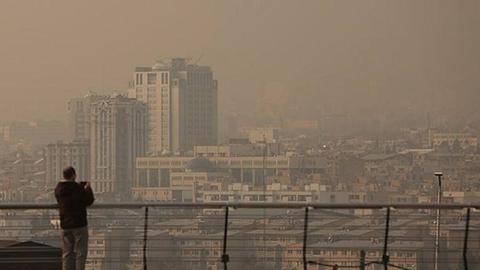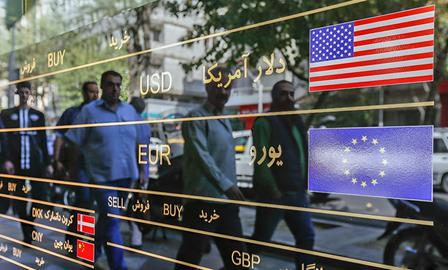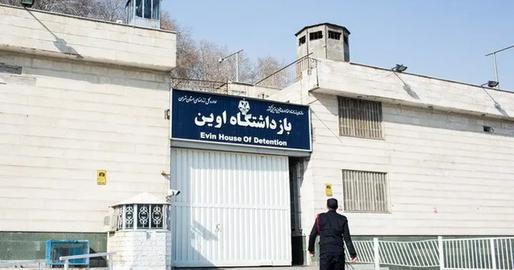Every year, the deteriorating air quality in Tehran and other Iranian cities on the final days of December forces the authorities to order the closure of schools and other services.
That’s what happened this week, when school classes were held remotely in Tehran, the southern city of Ahvaz and urban areas in the provinces of Alborz, Isfahan and Arak.
Last week, residents of Tehran and other major cities were advised not to leave their homes due to high air pollution, which causes respiratory and other diseases reportedly leading to 40,000 premature deaths across the country every year.
For many years, the large number of non-standard cars and gasoline used were blamed for soaring air pollution. More recently, some experts have pointed their fingers to mazut, a low-quality heavy fuel oil burned in power plants and other factories, especially during winter.
The Usual Suspects
Climatologist Nasser Karami tells IranWire that cars in Iran are used for a long time past their retirement age and, as a result, many polluting cars remain in circulation. But he says that new vehicles can also be very polluting.
“The first group [of polluting vehicles] are the so-called zero-kilometer used cars, meaning that…the amount of pollution they produce is comparable to a used car. The second group might have been manufactured according to standards but, because of the shortage of spare parts, they become pollutants after some time.”
Another issue is the low-quality gasoline used in these cars. The level of sulfur in the gasoline sold in Iran is high and is increasing year after year because the country’s refineries are worn out, according to Karami.
Three years ago, Shina Ansari, Director-General of the Bureau of Comprehensive Environmental Pollution Monitoring of the Environmental Protection Agency, reported that the level of sulfur in 84 percent of the samples gathered at petrol stations around Iran was around five times the standard level.
Mazut, used in the Industry as Fuel
Mazut is another major factor contributing to increased levels of sulfur dioxide and nitrogen dioxide over Iran’s metropolitan areas.
Mazut is a byproduct of refining petroleum. When used by power plants and some other industries, it generates much more pollution than natural gas.
Agroecology expert Mansour Sohrabi says that Iranian refineries are outdated and, as a result, produce great quantities of mazut.
The amount of mazut produced in most Iranian refineries reaches 50 percent, while in most countries the figure stands at between five to 10 percent.
According to Sohrabi, this low-quality Iranian mazut cannot be sold on the world market, and since storing it is very difficult, there is no other way but to consume it domestically.
Officials in Isfahan, Khuzestan and Markazi have recently confirmed that power plants in these provinces were burning mazut during winter due to natural gas shortages. Officials at the Environmental Protection Agency have denied that mazut is used in Tehran.
Parviz Sarvari, chairman of the Supreme Council of Provinces, has pointed out that the government faces a tough choice: either shut down factories to protect the air or use polluting mazut to produce electricity.
Breathing the Sulfur Poison
Energy expert Farid Safari says that the industry sector in Iran burns mazut without removing or at least reducing its sulfur in order to reduce costs.
Sulfur dioxide, along with nitrogen dioxide, affect both health and the environment. Sulfur dioxide causes acid rain which in turn pollutes soils and underground waters.
Mehdi Pirhadi, head of Tehran City Council’s Health, Environment and Municipal Services, has recently reported that air pollution causes more than 4,000 premature deaths annually in Tehran.
“Air pollution is a difficult issue that the people and the officials are unable to solve and, unfortunately, it is getting worse every day,” he added.
According to the World Health Organization, air pollution is killing around 7 million people globally every year. About 90 percent of those deaths take place in low and middle-income countries.
visit the accountability section
In this section of Iran Wire, you can contact the officials and launch your campaign for various problems





















comments
The only solutions I can think of from a vague understanding of issues would be to turn off anything causing the most pollution with the least amount a need immediately. Then to pattern the shut offs for anything of middle ground need. Even spaces of shut-off can drastically reverse negative changed. Also consider som e underground encampments if necessary and perhaps investments in quality N95 masks or something similar for reduction of health hazard. ... read more